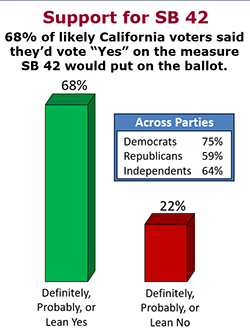It's no secret that money is key when it comes to all human
endeavors, and whether you believe the words to be sacred
or not, we do all understand that the phrase "The love of
money is the root of all evil" has more than a little truth
to it.
And even before the informant Deep Throat advised reporters
Bob Woodward and Carl Bernstein to "follow the money" to
get to the heart of the Watergate story, we've known that
money and politics are enmeshed. It's even worse for the
public if voters can't tell who is funding political
campaigns. How are we to know if legislative votes are
being bought and paid for, or if administration policies-at
the federal, state and local level-are directed to benefit
big-bucks campaign donors if we can't figure out who is
behind the campaign?
That's the main problem with everything from the Citizens
United decision by the U.S. Supreme Court-which ruled that
corporations could make unlimited donations to political
action committees and campaigns that were not affiliated
with a candidate-to campaign disclosure laws that don't
have enough in the way of enforcement.
We need to know who is paying for politics in order to be
sure that our government is not for sale to the highest
bidder. We need to know who is funding campaigns so that we
can decide whether their interest in the issue is in the
public interest or merely self-serving.
We need to know who is paying the bills so that we can tell
who is really calling the shots.
And that's what new legislation, Assembly Bill 1648, the
California Disclose Act, would help accomplish. Introduced
by Assemblywoman Julia Brownley (D-Malibu) and supported by
the California Clean Money Campaign, A.B. 1648 would
increase transparency in campaign advertising by requiring
that the three largest funders of political advertising be
clearly identified by both their name and logo.
The provisions of this bill would apply to all political
advertising-including mass mailers, TV ads on ballot
measures, initiatives and candidates-whether paid for by
corporations, unions or wealthy individuals. It will make
sure that advertisements provide access to more information
about who is paying for what, and it's specifically
designed to pull the curtain back and reveal the man-or
woman-for all to see.
That's right, Toto. A.B. 1648 will mean that we can pay
attention to what's happening behind the curtain.
If an oil company is behind energy legislation, we should
know. If a food company is behind labeling legislation, we
should know. If a group with unsavory ideals is pushing an
initiative, we should know.
In order to wade through the political muck, we need to be
able to follow the money.
The California Disclose Act is a step toward a more
transparent process, and we urge readers to contact their
state legislators to support its passage.




